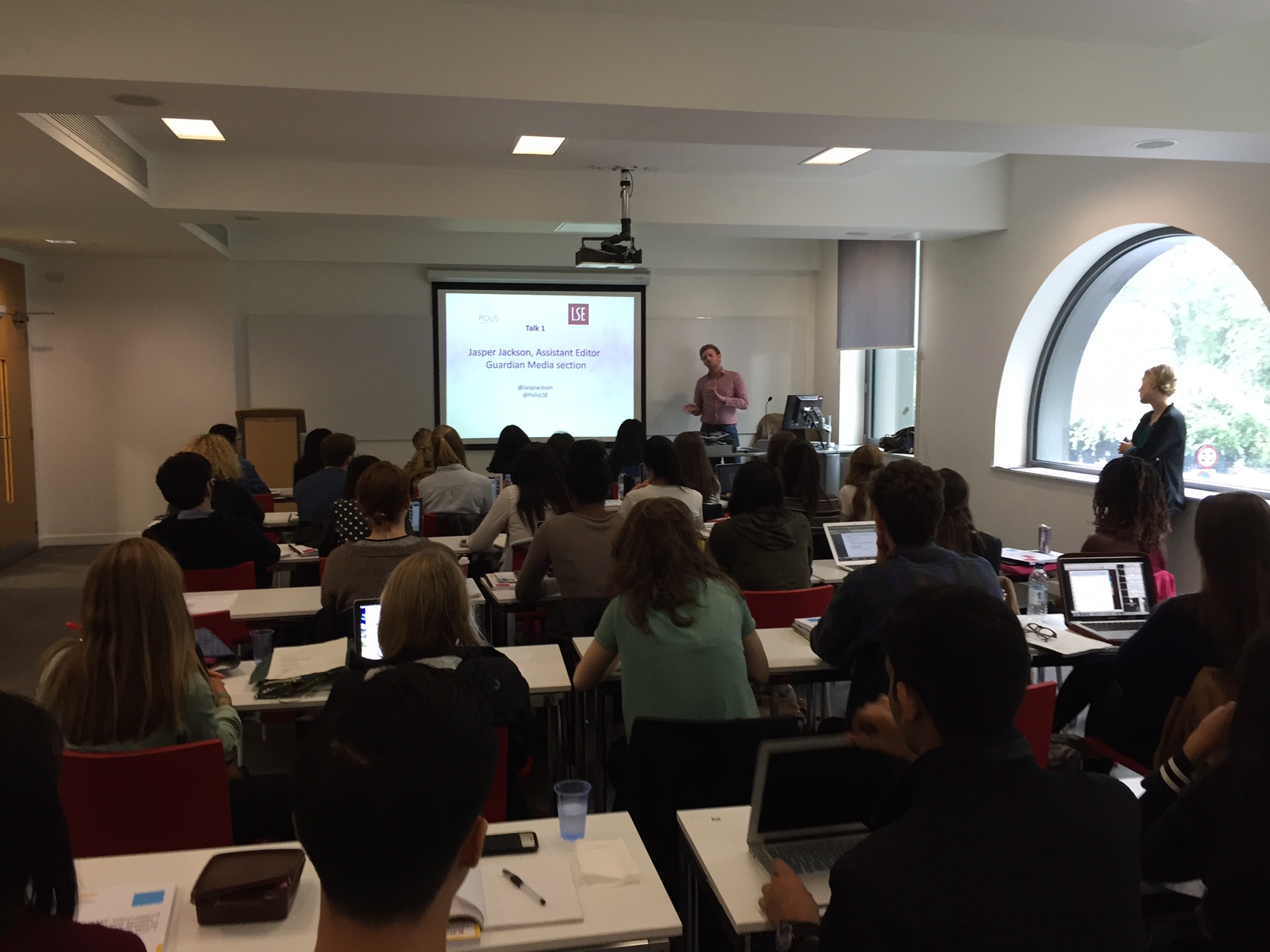Are we too attached to technology and our mobile devices? MSc student Jessica Di Paolo reports on the first Media Agenda Talk by internet technologist Ben Hammersley on the future of media in an age of ever-advancing technology.
 The statistics are alarming. According to a group of researchers at Harvard, says Ben Hammersley, 95% of people who own a smartphone have felt their phone vibrating in their pocket when it wasn’t. Initially, such a huge percentage would strike one as odd. But if we think about our checking habits and the amount of time that we spend with new technologies, these statistics are less surprising…
The statistics are alarming. According to a group of researchers at Harvard, says Ben Hammersley, 95% of people who own a smartphone have felt their phone vibrating in their pocket when it wasn’t. Initially, such a huge percentage would strike one as odd. But if we think about our checking habits and the amount of time that we spend with new technologies, these statistics are less surprising…
Living in a digital world we are able to find everything we need on the web, and this has transformed the way we live our lives and our relationships with each other. From doing ordinary things – such as buying DVDs, books, music – to making the toughest decisions of our lives, we tend to rely on the internet for information and for assistance.
Although I strongly support this culture of digital ubiquity, I have to admit that smartphones are taking over my life in a way that is extremely hard to control. I check my Twitter/Facebook compulsively. When I wake up, the first thing I do is look at my email, check the news, and answer posts on my Facebook wall. Sometimes I feel panic and anxiety if I can’t check my iPhone or I become aggressive if don’t receive answers to important emails.
Digital devices have become incredibly intimate

Hammersley rightly calls the predominance of new technologies the “intimacy of the media” by emphasising how we could not survive without the comfort of our cyber appendages.
I did an experiment last year. The aim was to analyse the social and psychological consequences of living one whole day without any digital devices. After two hours I began to feel phantom vibrations in my bag where my phone usually resides. Stressed and anxious, I kept asking my friends to check my emails and Facebook page because I was feeling left outside the world. In my free time, I didn’t know what to do. I used to watch my favourite TV series on my laptop, read an e-book, listen to the music through Spotify, or talk with friends on Skype. But by recreating my hobbies without the technology, I was surprised by the different activities I could engage in, such as having a coffee with a friend.
Hammersley says the main reason why people spend a huge amount of time on the web is not because of something ‘important’ such as the news but because social and digital platforms give them rewards and satisfaction. I believe this is connected to the concept of intimacy between media and users.
Future implications
According to Mr. Hammersley, “We can’t predict how this media intimacy and pervasiveness will impact on and shape our future.” “We must look at social implications of computing power replacing what only humans could do before.”
I believe that the future of digital media is still quite hard to predict. We can make hypotheses, debate the social impact of emerging Artificial Intelligence and of microchips inside of our brains, but this is all only speculation. In practice, I am convinced that the key is in adapting our lifestyle to the new technologies, following their progress step by step with a critical perspective. However, this doesn’t mean either being ‘victims’ of our iPhones or changing our personality and interests. It means critically assessing the new technologies transformations and being prepared to change.
Next week’s Media Agenda Talk will be a lecture by investigative reporter and author Nick Davies.
This post was written by MSc student Jessica Di Paolo @JessDiPaolo
Photo credit:
Matt M. Accessed on Flickr
Gabriele Barni. Accessed on Flickr





